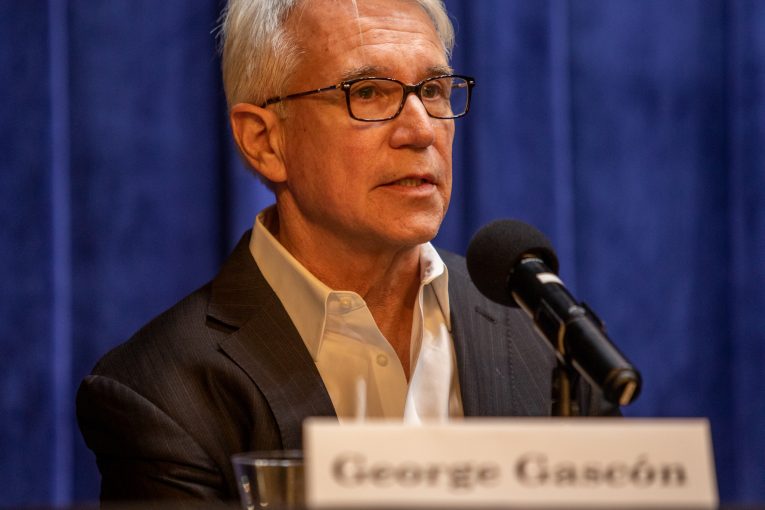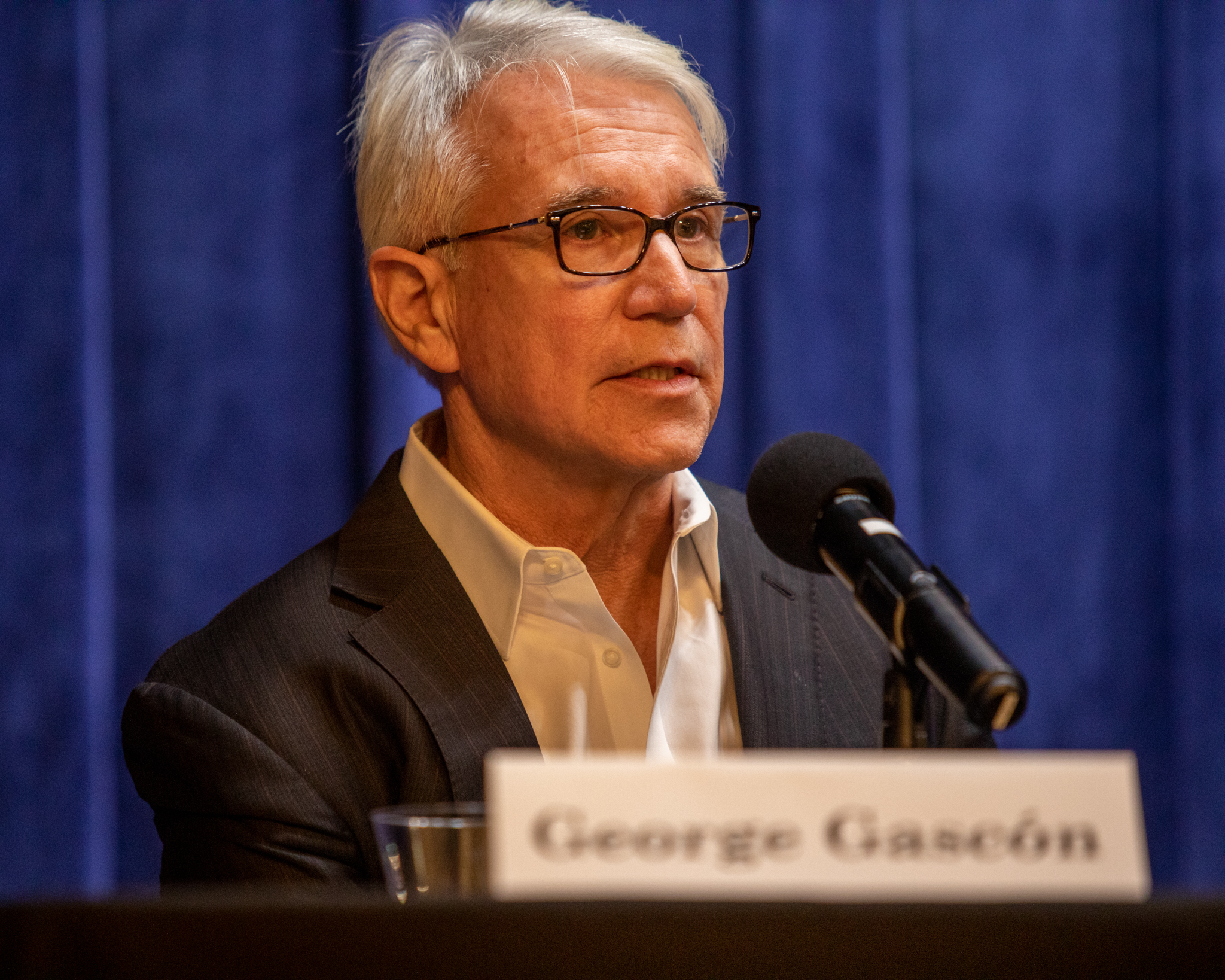

By Evie Sun
LOS ANGELES – Newly sworn-in Los Angeles District Attorney George Gascón issued an open letter Friday after backlash that he received about his new policies which would eliminate all sentencing enhancements.
After being sworn in less than two weeks ago, Gascón announced that, on top of ending the death penalty and stopping the use of cash bail for misdemeanor or nonviolent offenses, he would be eliminating inmate sentencing enhancements.
A sentence enhancement increases prison time for defendants who have committed hate crimes, attacked police, or are ex-felons or gang members.
However, on Friday, after receiving backlash regarding this controversial policy, Gascón reversed course and announced prosecutors may now file sentencing enhancements for specific types of cases  involving the “most vulnerable,” such as cases involving children, the elderly, and hate-motivated crimes.
involving the “most vulnerable,” such as cases involving children, the elderly, and hate-motivated crimes.
Police unions, victims’ advocates and prosecutors raised concern that the elimination of enhancements would allow those charged with violent crime such as murder and rape to be released.
In response to this resistance, he reiterated his intentions for rolling out the policy.
“Enhancements are also the primary driver of a system of mass incarceration that needlessly siphons billions into jails and prisons, and away from our communities and the investments victims of crime want us to make,” Gascón said.
He also argued that sentencing penalties disproportionately affect populations of color and those facing mental health challenges, noting, “Enhancements are also three times more likely to be applied to defendants who are African American or mentally ill.”
In his statement, Gascón also announced that, to provide input and further guide policy directions made by his office, he has launched a victims’ advisory board made up of survivors and advocates.
“I recognize that there are some victims (who) want this office to seek the maximum sentence permissible in their case, but punishment must be in the community’s best interest, proportional, and it must serve a rehabilitative or restorative purpose,” Gascón explained.
Referring to his 40 years as an officer, Gascón added, “As I have for decades, I will work tirelessly to restore victims and help them on their journey to survivor. What I have learned from victims and advocates alike over the years is that few crime victims find healing from the trauma they’ve suffered simply by putting another in a cage.”
Gascón seeks to curb mass incarceration and adopt a rehabilitative approach in addressing the racial inequities embedded in the justice system.
“I have and I will continue to make sweeping changes to our systems of justice, and I will do it because it will make us safer,” Gascón said.
 Evie Sun is a third-year student at UCLA, studying Sociology. She is from the East Bay Area.
Evie Sun is a third-year student at UCLA, studying Sociology. She is from the East Bay Area.
To sign up for our new newsletter – Everyday Injustice – https://tinyurl.com/yyultcf9
Support our work – to become a sustaining at $5 – $10- $25 per month hit the link:
Just saying something makes us safer doesn’t mean it’s true.
This statement reminded me of Prop 47″
Somehow “10,000 felons will be released from prison back to our local communities. Proposition 47 will decrease the penalties for serious crimes such as gun theft, possession of date rape drugs, burglary and identity theft” was deemed the “Safe neighborhoods and schools act”. Go figure.
https://www.sanluisobispo.com/opinion/letters-to-the-editor/article39501198.html
Read more here: https://www.sanluisobispo.com/opinion/letters-to-the-editor/article39501198.html#storylink=cpy
That’s true, but there are studies that have been done that have examined the question.
For instance: https://www.ppic.org/publication/the-impact-of-proposition-47-on-crime-and-recidivism/
Sorry, but going soft on crime, shortening sentences and releasing felons from prison does not make us, our neighborhoods or our schools safer. Cite any study or publication you want.
Soft on crime is an opinion. Better understanding of the way crime interacts with society and how to lower rates of recidivism means that a lot of the things we did in the past did not work, were expensive, put people away well after they were actual threats to society, etc.
Think about it – most people aren’t dangerous. They don’t commit violent crimes. Yet we spend $50 to $80 thousand a year to put them in a cage. That’s the amount of money someone spends on a first rate education at a top college. What if we took that money and invested it in education and training instead of putting people in cages? Yes, there are dangerous people that we have to deal with differently, but the whole system is so inefficient it makes no sense. And it doesn’t work. That’s why we have a 70 percent recidivism rate. You can call that soft on crime, but I think we’re stupid on crime.
You’re now talking about money and I can agree with you there. But still don’t tell me that releasing felons, shortening sentences and other crime softening edicts is somehow making the rest of us, including our schools, safer. Not buying it!
Not all felonies are teh same. Up until Prop 47, possession of 0.1 grams of meth was a felony.
So are you trying to tell me that low level drug offenders are the only felons getting released? You seem to be doing a lot of dodging.
Under SB47 the people who are now charged as misdemeanors are largely those who were charged for drug possession (but not sales) and petty theft.
Both Motte and Bailey ate a lot of pie last night, with heaping helping of whip cream.
Sounds like he’s winging it. These things shouldn’t be turned on a dime over politics or backlash, they should be worked out with stakeholders.
SOME victims of crime. The ones he chooses to listen to.
That’s better – as long as he doesn’t hand-pick victims who agree with him politically.
He is winging it a bit – he might have bitten off too much on Day 1 – a lot of the other other DAs who have made reforms have rolled them out, he basically rolled them all out at once.